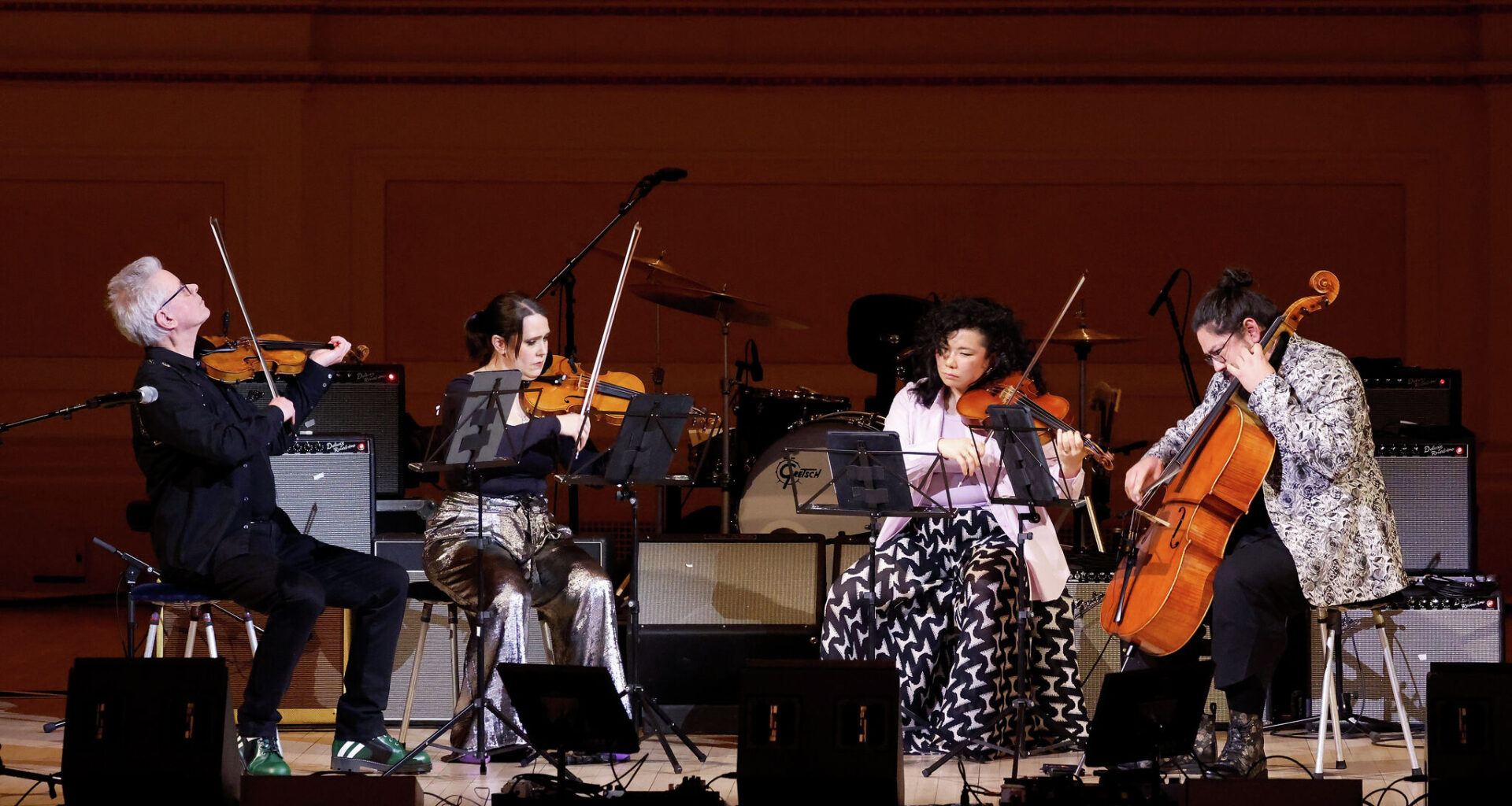Music has a gleeful, devious way of slipping out of its bounds and speaking to us in surprising ways. But the Kronos Quartet, which presented “Beyond the Golden Gate,” recently provided a droll reminder of music’s refusal to be contained.
Put bluntly, the educational, multimedia program presented by Cal Performances at UC Berkeley’s Zellerbach Hall on Saturday, Oct. 11 was less a performance than a lecture with background music.
While guest speaker and activist David Lei highlighted the significant contributions of Chinese and Chinese American communities to American society and civic life, the Kronos Quartet and pipa player Wu Man plucked and bowed quietly in the background. Punctuated by arbitrary leading questions, not even Lei’s inviting speech could change the fact that this felt like a history class.
The evening’s unifying refrain of “Why don’t we know this?” began to feel like an unfair admonishment. Many in the Bay Area do know about the vital role Chinese communities played in shaping our local and national histories. The worst offense, however, was reducing the work of composers Dai Wei, Lei Liang and Wu Man to a mere backing track, with the individual pieces blending together underneath the speech. The music occasionally rose to the surface with potential insight, such as in the rousing final number, an updated version of traditional Chinese music — only to be quickly pushed back under.
Music doesn’t always have to be in the spotlight, but when a performance begins to feel like an audiobook, something is clearly wrong.
Fortunately, the Kronos Quartet showed they still know this in their world premiere performance of Dai Wei’s “Through the Paper Gate,” a multimedia piece featuring Wu Man. While telling the story of the disappearance of chop suey from Chinese restaurants in America, “Through the Paper Gate” incorporated sound samples that evoked familiar atmospheres: the busy streets of Philadelphia’s Chinatown, the dining room and kitchen of a Chinese restaurant, the slight clinks of chopsticks against vegetables and ceramic plates.
To a crescendo of playful plucking, projected images highlighted that oh-so-American image of the fortune cookie. But the humor of this familiar image and its musical soundtrack soon darkened. The plucking transformed into relentless, bowed, clocklike ticking as distorted singing voices slyly faded in and appetizing images of chop suey were replaced by those of an assembly line mass manufacturing fortune cookies. The unexpected combination of this machine-like music with fortune cookie molds blasted the obvious warning and condemnation that even a Chinatown kitchen is not free from the insidious consequences of our flawed desire for the “authentic.”
“Through the Paper Gate” was the Kronos Quartet at their best, blurring the lines between music, technology and cultural reference in order to reevaluate what music is, or what it is supposed to do. This has been part of the quartet’s mission since the group was founded in the 1970s. In albums like the 1989 “Different Trains/Electric Counterpoint” and 1990’s “Black Angels,” the string quartet demonstrates their ability to reframe our understanding of the world via startling collaborations.
While those albums foregrounded the quartet’s messy, kinesthetic, unbounded qualities, “Beyond the Golden Gate” ropes it all in. This program will likely teach audiences one or two things about Chinese contributions to American democracy, but its overarching sacrifice of what makes music so wonderfully, frustratingly compelling means it is hardly likely to inspire revisiting.

